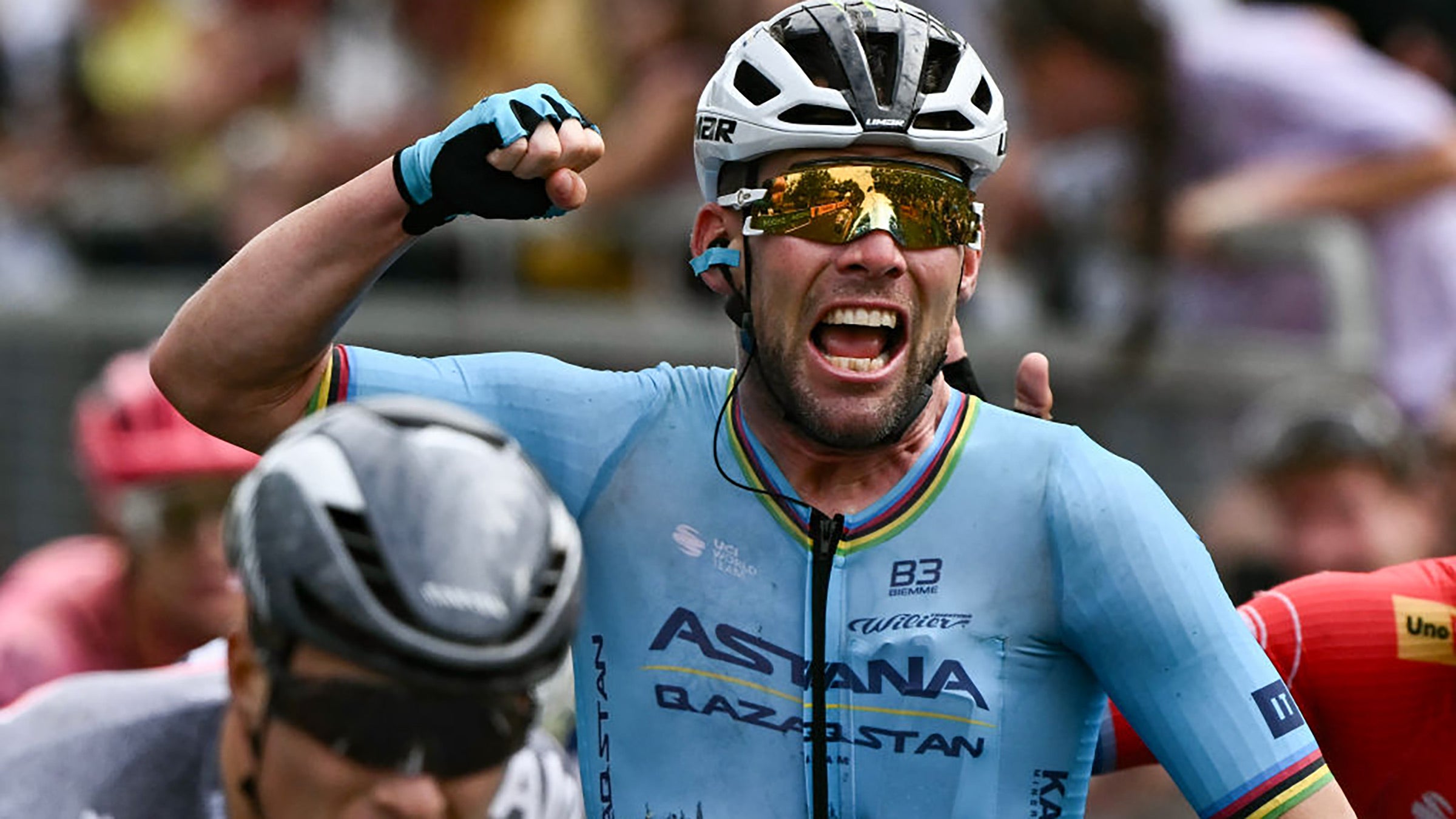There was a time in the not-so distant past when British cyclist seemed to have a better shot at winning a bowling tournament or a game of darts than claiming another stage at the Tour de France. Cavendish, perhaps the best pure sprinter in cycling history, spent the 2017-2020 seasons struggling with illness and injury and various other setbacks.
Cycling journalists, myself included, watched as these calamities tore Cavendish apart from inside. He’d , y, and regularly . In 2019, Cavendish could barely stay with the peloton at the Tour of Slovenia, let alone thrive at the Tour de France. This fallow period came during his mid-thirties, the age when most pro cyclists ride off into the sunset.
But one goal kept Cavendish coming back to the sport in lieu of the losses and heartache: his dogged pursuit of the Tour de France’s record for most stage victories. Since 1977 that number had held at 34, set by the greatest all-around cyclist of all time, Belgian legend Eddy Merckx.
⚔️ SIR MARK CAVENDISH 🏆
🇬🇧
— Tour de France™ (@LeTour)
And then, Cavendish’s form returned. During the 2021 Tour, Cavendish scored an amazing four stage wins, which brought him even with Merckx. The history books seemed within reach. And then, more setbacks. His Quick Step-Alpha Vinyl team left him off the Tour roster in 2022 in favor of the younger sprinter Fabio Jakobsen. He returned to the Tour with a different team, Astana Qazaqstan, in 2023, only to crash out of the race on the eighth stage during what was supposed to be his final season.
I, along with a few other cycling pundits, assumed Cavendish would simply retire after that heartache, content to be tied with Merckx in the history books. Boy were we wrong.
On Wednesday, Cavendish unleashed a sudden burst of speed in the waning moments of the Tour’s fifth stage to win the stage, vaulting him past Merckx in the history books as the Tour’s most prolific winner.
The victory showcased Cavendish’s brains and brawn as a racer: after he lost touch with his teammate in the chaotic gallop to the line, Cavendish found the wheel of the sport’s new dominant sprinter, Jasper Philipsen of Belgium, and then bolted around him just before the finish.
The 39-year-old Cavendish was mobbed after crossing the line, first by his Astana teammates, and then by other Tour riders as he celebrated his milestone. He brushed back tears during his post-race television interview, and shook his head in disbelief as he replayed the win.
“It’s how the Tour de France is. You sprint as hard as you can until you get to the finish line. And maybe your life changes”
Mark Cavendish talks to Matt after winning his record breaking 35th Tour de France stage 🙌🇮🇲
— ITV Cycling (@itvcycling)
“You sprint and go as hard as you can until you get to the finish and maybe your life changes if you cross that line first, maybe it doesn’t if you don’t,” Cavendish said. “That is the nature of this race and what makes it so beautiful.”
It’s also been the nature of his career. Cavendish has raced in the pro ranks since the 2006 season. For context, the Tour’s current leader, Tadej Pogacar, was eight years old back then. He won his first Tour stage in 2008, which kicked off a six-year run of dominance, before enduring winless streaks, returns to greatness, and more fallow times.
Over that span Cavendish has battled multiple generations of rivals: Erik Zabel, Robbie McEwan, Marcel Kittel, Peter Sagan, Dylan Groenewegen, among others. He’s enjoyed longevity as a sprinter—a chaotic and dangerous profession that rewards strong legs, daredevil attitudes, and a big ego.
Two memories popped into my head as I watched Cavendish celebrate his historic win—scenes that reminded me of Cavendish’s good times and bad. The first came from stage 11 of the 2018 Tour, which finished high in the alpine ski resort of La Rosiere. Half an hour after stage winner Geraint Thomas had finished the stage, Cavendish huffed and puffed up the long ascent by himself, the final rider to finish. I stood alongside a handful of journalists as we watched him ride across the line.
He crossed it well past the elimination time cut, which mean he was disqualified for the remainder of the Tour. It was a yet another setback during Cavendish’s four-season fallow period, and it stung.
Cavendish cursed and spat and rode straight past his Dimension Data team bus and the gaggle of journalists standing out front, and beelined it straight to the hotel. His poor team director at the time, Douglas Ryder, had to answer for him. “Mark is bitterly disappointed,” Ryder told those of us gathered at the bus.
The next memory comes from the final stage of the 2013 Tour—a race where Cavendish collected two stage wins and challenged for the win in three others. Cavendish didn’t win the final sprint along the Avenue du Champs Elysees in downtown Paris, but still he was still encircled by adoring fans along the historic avenue. Whatever disappointment he felt seemed to melt away, and he enjoyed the attention, smiling and signing autographs. At the time he was 28 and still dominating the Tour’s sprint stages, and the Merckx record seemed like an inevitability.
We now know that the record wasn’t predestined—but rather something Cavendish would spend the next 11 years chasing. And the struggles he endured to get back to the Tour’s winning circle, in my mind anyway, make his accomplishment all the more worthy of praise.


